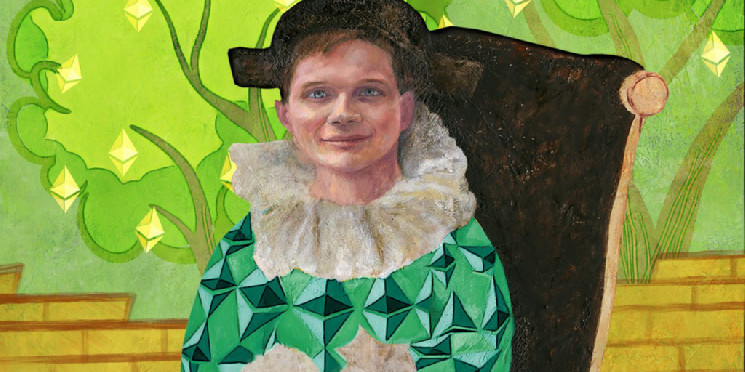An $NFT painting of Ethereum co-founder Vitalik Buterin dressed as a jester has sold for 200 $ETH, equivalent to $392,308 at the time of sale, on the secondary market—injecting another glimmer of hope into the long-sluggish $NFT ecosystem.
The digital painting, a one-of-one $NFT titled “EthBoy” made by the crypto artists Trevor Jones and the late, pseudonymous Alotta Money, broke records when it first sold at auction in November 2020 for a whopping 260 $ETH, making it at the time the most expensive $NFT artwork ever sold. Based on fluctuations in the price of $ETH over the intervening years, though, the value of that sale—about $140,000 at the time—pales in comparison to that of this week’s resale.
When "EthBoy" was first minted, it entered an $NFT ecosystem very different to today’s. Crypto art and PFP NFTs consistently broke sale records on their ascent to the eventual crescendo of the 2021 $NFT bull run.
Critically, also, the novel medium was so eagerly embraced by traditional artists like Jones (a painter by trade), due to its prioritization of creator royalties—fees, typically between 2.5% and 10%, that were then mandatorily tacked on to any secondary sales of an $NFT, and given to the piece’s creator.
Gm! Ethboy just sold on secondary for 200 $ETH! 🤯 pic.twitter.com/QpqoBu2RTM
— Trevor Jones 🎨 (@trevorjonesart) November 16, 2023
In the last year, creator fees have become the focal point of an escalating crisis in the struggling $NFT ecosystem. Once considered a key incentive for artists enforced by all major $NFT marketplaces, the fees have now become optional at major platforms like OpenSea, which have struggled mightily to attract customers and keep revenue steady amidst the current bear market.
Though "EthBoy" was sold this week via the OpenSea marketplace, it does appear that the $NFT’s new owner opted—of their own accord—to pay the work’s creator fee, despite not being obligated to do so. The 10% creator royalty of 20 $ETH, automatically paid to Async Art, the platform that coordinated the piece’s creation, constituted what’s essentially a $39,230 tip.
When "EthBoy" was first minted, its creators—then intent on demonstrating the unique selling points of on-chain art sales—committed to sharing one third of creator fees generated by the artwork’s future sales with the piece’s first buyer, in perpetuity.
That first owner, the pseudonymous MaxStealth, has held on to "EthBoy" since 2020. In addition to the base revenue they collected yesterday from the work’s sale, they should thus also soon be receiving just over $13,000 worth of $ETH as their portion of the creator fee. It’s an enticing, but potentially soon to be outdated, taste of the $NFT art market’s economic potential.
Edited by Andrew Hayward
 decrypt.co
decrypt.co
